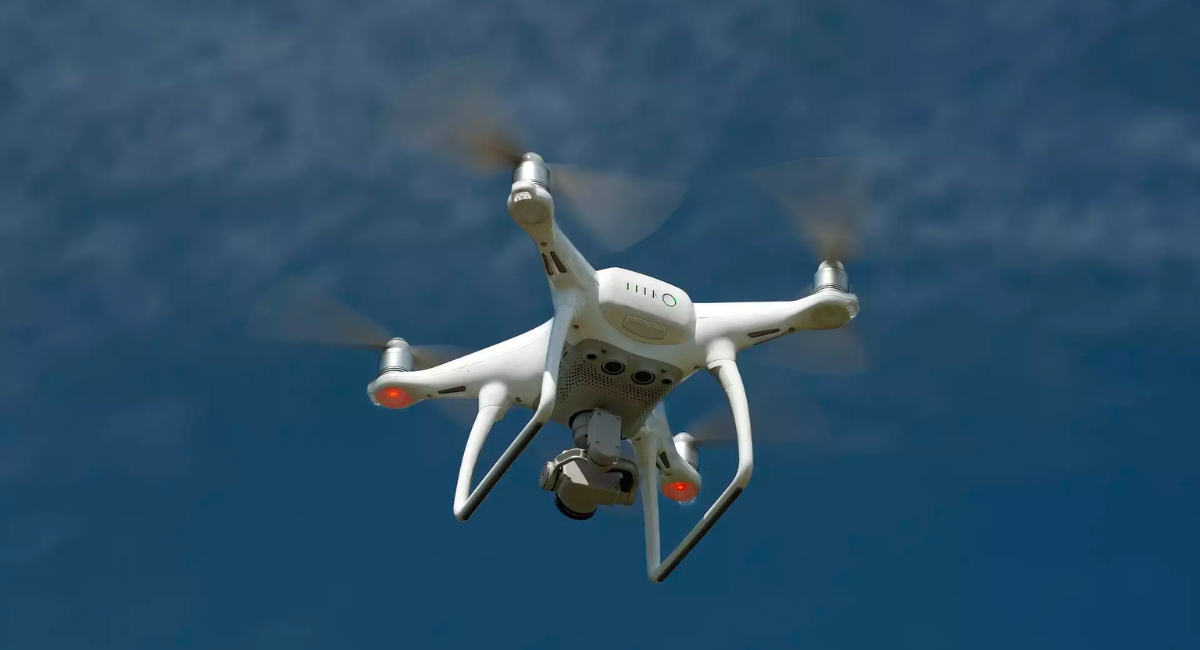Tech
Forever Voices: A Chatbot Company’s Dramatic Downfall Amidst Scandal and Legal Woes

n recent developments that have sent shockwaves through the AI chatbot community, Forever Voices, a company known for its unique approach to providing services through the texting platform Telegram, has faced a severe setback following the arrest of its founder and CEO, John Meyer. The arrest, which occurred on October 22, stemmed from Meyer’s alleged involvement in attempted arson, leading to the disruption of services and raising questions about the company’s future.
Forever Voices distinguished itself from major players like Replika AI by operating on the Telegram platform and offering users the chance to interact with chatbot versions of high-profile influencers, including figures like Caryn Marjorie, Amouranth, Adriana Chechik, and Brandi Love. While some influencers willingly associated themselves with projects like “CarynAI,” other offerings, such as “Sims: Erotica Edition” and the controversial “Kanye West Forever Companion,” raised eyebrows for their dubious nature.
The company’s downfall became apparent as users reported service outages on the Forever Voices subreddit, starting as early as October 26. By the end of October, the service was completely unresponsive, confirmed by 404 Media. The crisis escalated further as Meyer’s apparent mental breakdown played out on the official Forever Voices Twitter account, leading to incoherent accusations against political figures and law enforcement agencies.
Also Read: Hollo.AI Introduces New AI Identity Verification to Tackle Deep Fake Challenges
The allegations against Meyer took a disturbing turn with his arrest for attempted arson of his own apartment building. Additionally, he reportedly made a public threat on Twitter to blow up the offices of a software company catering to restaurants. The legal troubles of Forever Voices’ CEO raised serious concerns about the company’s future and the fate of its unique AI-powered chatbot offerings.
The situation draws parallels to a crisis earlier in the year involving Replika AI, another major player in the chatbot industry. Replika faced challenges related to erotic content, prompting the introduction of keyword-targeting soft blocks. This decision, attributed to founder Eugenia Kuyda, sparked controversy among users who had formed parasocial relationships with the company’s ChatGPT-powered products. The motivations behind this move, whether ethical considerations or liability concerns, remain a subject of speculation.
The abrupt downfall of Forever Voices highlights the vulnerability of AI-powered chatbot companies. In both cases, the crises were triggered by a combination of legal troubles, mental health concerns, and controversies surrounding explicit content. The unpredictable nature of these events underscores the precarious position of such companies, where a single incident can lead to rapid deterioration and service shutdowns.
The broader implications of these incidents raise questions about the industry’s ability to regulate and address ethical concerns associated with AI chatbots. Users’ interactions with these bots, particularly in the realm of explicit content, have led to unforeseen consequences, emphasizing the need for responsible development and deployment of AI technologies.
As the dust settles on the demise of Forever Voices, users and industry observers are left contemplating the ethical dimensions of AI chatbot services. The unfortunate turn of events serves as a cautionary tale, urging companies in the space to prioritize ethical considerations, mental health awareness, and legal compliance to ensure the long-term sustainability of their ventures. The saga of Forever Voices serves as a reminder that, in the world of AI-powered pals, one bad day can lead to a swift retirement, echoing themes reminiscent of a dystopian future à la Blade Runner.
Tech
Google Pay and NPCI Collaborate to Expand UPI Internationally, Revolutionizing Cross-Border Digital Payments

In a groundbreaking move, Google Pay and the National Payments Corporation of India (NPCI) have joined forces to expand the Unified Payments Interface (UPI) internationally. The partnership, as outlined in a Memorandum of Understanding (MoU) between Google Pay India and NPCI subsidiary NPCI International Payments Ltd (NIPL), aims to extend the widely used UPI system beyond Indian borders. This strategic collaboration is set to revolutionize international digital payments, ease transactions for Indian travelers, and establish UPI-style digital payment infrastructure in other countries.
Growing UPI Adoption in India:
The UPI system has witnessed remarkable growth in India, becoming a predominant mode of digital payment. In 2023, the value processed through UPI payments reached a staggering Rs. 167 lakh crores, reflecting the widespread adoption and trust in this instant payment system. The interoperability between popular payments apps like Google Pay, PhonePe, and Paytm has contributed to the seamless and widespread use of UPI throughout the country.
Also Read: Garuda Aerospace Receives Dual Certification, Paving the Way for Drone Innovation in India
The Collaboration’s Objectives:
The primary focus of the collaboration between Google Pay and NIPL is to facilitate digital payments for Indian travelers abroad. The initiative also aims to establish a UPI-style digital payments infrastructure in other nations, providing a secure and efficient alternative to traditional payment methods. Additionally, the partnership seeks to simplify cross-border financial exchanges by leveraging the existing UPI infrastructure for remittances between countries.
Impact on Cross-Border Financial Exchanges:
Deeksha Kaushal, Director of Partnerships at Google Pay India, highlighted the transformative impact of UPI on economies, emphasizing that joining such networks brings about a significant step change. The collaboration aims to extend the success of India’s digital payments ecosystem to other countries, making cross-border transactions smoother and more accessible. This initiative has the potential to reshape international finance by offering a secure and efficient alternative to conventional payment methods.
Simplifying Transactions for Indian Travelers:
One of the key objectives of this collaboration is to simplify foreign transactions for Indian travelers. By leveraging UPI apps like Google Pay for international digital payments, the need for credit or forex cards may be reduced. This not only enhances the convenience for Indian travelers but also positions UPI as a global player in the digital payments space.
Strategic Benefits for Google Pay and NPCI:
Ritesh Shukla, CEO of NPCI International Payments Limited, expressed that this strategic partnership not only simplifies foreign transactions but also allows the extension of expertise in operating a successful digital payments ecosystem to other countries. For Google Pay, this collaboration presents an opportunity to expand its footprint globally and reinforce its commitment to providing innovative and user-friendly payment solutions.
SEO Keywords for Maximum Visibility:
To enhance SEO score, incorporating relevant keywords is crucial. Keywords like “UPI,” “Google Pay,” “NPCI,” “digital payments,” “cross-border transactions,” and “international payments” should be strategically placed throughout the article. These keywords not only capture the essence of the collaboration but also align with the current trends in the fintech and digital payments landscape.
Conclusion:
The collaboration between Google Pay and NPCI to expand UPI internationally marks a pivotal moment in the evolution of digital payments. As UPI continues to redefine the landscape of financial transactions in India, its extension to global markets holds the promise of transforming cross-border payments. With the potential to simplify transactions for Indian travelers and establish a UPI-style infrastructure globally, this partnership is set to shape the future of international digital payments. As Google Pay and NPCI pave the way for a seamless and secure cross-border payment ecosystem, the impact on the global financial landscape is likely to be substantial.
Tech
Garuda Aerospace Receives Dual Certification, Paving the Way for Drone Innovation in India

In a groundbreaking development, the Directorate General of Civil Aviation (DGCA) has granted Garuda Aerospace the coveted authorization for a Remote Pilot Training Organization (RPTO) for Small and Medium Class drones. This dual certification not only sets Garuda Aerospace apart as a trailblazer but also positions it as the sole drone company in India with the unique distinction of being certified for both drone training and manufacturing in the small and medium class categories.
The significance of this achievement is underscored by the company’s assertion that it aligns with the vision of Prime Minister Narendra Modi’s ‘Namo Drone Didi’ initiative. This initiative seeks to empower 15,000 women Self Help Groups with agricultural drones, contributing to the advancement of technology and enhancing the role of drones in the agricultural sector.
Empowering the Youth and Fostering Inclusion:
Garuda Aerospace’s commitment to training the next generation of drone pilots in India is evident in its goal to train 100,000 youth across the country. This not only aligns with the company’s vision for widespread adoption of drone technology but also supports the broader national agenda of upskilling and empowering the youth with cutting-edge capabilities.
Moreover, the dual certification by DGCA aligns seamlessly with Garuda Aerospace’s Diversity, Equity, and Inclusion (DE&I) initiative, specifically through the Equality Drone Training Program. This program is designed to benefit individuals with disabilities, emphasizing the company’s commitment to creating an inclusive environment in the rapidly evolving drone industry.
Versatile Applications of Small and Medium Class Drones:
Garuda Aerospace’s array of small and medium drones caters to a diverse range of applications. Small drones are adept at surveillance, monitoring, and photography, showcasing their versatility in various industries. On the other hand, medium drones excel in more complex tasks such as agricultural mapping, spraying, infrastructure inspection, delivery services, and emergency response.
Also Read: Apple’s Strategic Moves: Advancing Manufacturing Operations in India
This dual certification not only positions Garuda Aerospace as a key player in the drone manufacturing space but also elevates its role as an organization driving innovation and progress in India’s drone ecosystem.
Founder and CEO’s Vision:
Agnishwar Jayaprakash, the Founder and CEO of Garuda Aerospace, expressed gratitude for the DGCA’s dual certification. He underscored the company’s unwavering commitment to excellence and its overarching vision for both the company and the nation. Jayaprakash believes that drones have transformative potential across various sectors and anticipates that the DGCA certifications, coupled with government support, will expedite the adoption of drones in India.
Furthermore, the visionary leader sees this achievement as a catalyst for propelling India into a global hub for drone technology. With government initiatives supporting advancements in the sector and Garuda Aerospace’s dedication to innovation, the company is poised to play a pivotal role in shaping the future of drone technology in the country.
Contributions to Innovation and IPO Plans:
In support of various initiatives, Garuda Aerospace recently showcased over 1000 drones during the Viksit Bharat Sankalp Yatra. The company’s earlier accomplishments, including Type Certificates and RPTO Authorization for Garuda Kisan Drones, along with a second Type Certification for medium class drones, highlight its active contribution to innovation in India’s drone ecosystem.
With legendary cricketer M S Dhoni backing the venture, Garuda Aerospace is not only making strides in innovation but is also gearing up for its Initial Public Offering (IPO). The company’s dedication to excellence, coupled with its strategic alignment with government initiatives, positions it as a frontrunner in the burgeoning drone industry in India.
In conclusion, Garuda Aerospace’s dual certification by DGCA is a testament to its commitment to innovation, inclusivity, and the advancement of drone technology. As the company continues to push boundaries, it not only solidifies its position in the industry but also contributes significantly to India’s journey towards becoming a global leader in drone innovation.
Tech
Apple’s Strategic Moves: Advancing Manufacturing Operations in India

In a significant move to strengthen its manufacturing foothold in the world’s second-largest smartphone market, Apple is reportedly in advanced talks with key component makers, including India’s Aequs Group and Taiwanese camera and lens manufacturer Rayprus Technologies. The Cupertino-based tech giant is also said to be in preliminary discussions with Indian contract manufacturer Dixon Technologies, signaling a concerted effort to diversify its supply chains beyond China.
Aequs Group: A Multifaceted Manufacturing Powerhouse
Aequs Group, based in India, is a versatile manufacturing powerhouse with a diverse portfolio. Renowned for producing high-quality toys, consumer durable goods, and aerospace parts across locations in India, the United States, and France, Aequs brings a multifaceted capability to the table. The inclusion of Aequs in Apple’s supply chain could extend beyond electronics manufacturing, as the company is equipped to produce a range of precision products, including iPhone cases and other high-quality items requiring exacting standards.
The strategic partnership with Aequs represents Apple’s intention to not only deepen its manufacturing operations but also to diversify across different product categories. By leveraging Aequs’ expertise in aerospace and consumer durable goods, Apple aims to enhance its presence in India and potentially tap into the growing demand for high-quality products in diverse sectors.
Rayprus Technologies: Precision Imaging Solutions Beyond China
Rayprus Technologies, a subsidiary of Taiwanese contract manufacturing giant Foxconn, is another key player in Apple’s expansion plans. Specializing in high-quality precision camera and lens solutions, Rayprus holds a unique position as one of the few suppliers globally that offer multi-camera modules for smartphones outside of China.
Also Read: OpenAI Launches Second Round of AI Startup Fund
The significance of Rayprus Technologies lies not only in its expertise but also in its strategic location. As Apple seeks to diversify its supply chains and reduce dependency on Chinese manufacturing, Rayprus emerges as a pivotal partner in providing cutting-edge imaging solutions. The move aligns with broader industry trends, where companies are exploring alternatives to traditional manufacturing hubs to mitigate risks and enhance operational resilience.
Dixon Technologies: Exploring Further Diversification
In addition to Aequs and Rayprus, Apple is reportedly in preliminary discussions with Dixon Technologies, an Indian contract manufacturer. While details of the discussions remain undisclosed, the inclusion of Dixon in the talks underscores Apple’s proactive approach to diversify its supply chains.
Dixon Technologies, a leading player in the Indian electronics manufacturing landscape, could contribute significantly to Apple’s plans for reducing reliance on Chinese manufacturing. If the discussions progress, it could open new avenues for Apple to tap into India’s burgeoning manufacturing capabilities, offering a strategic advantage in a market with substantial growth potential.
Strategic Implications and Market Dynamics
Apple’s moves to deepen its manufacturing operations in India carry significant strategic implications. Diversifying its supply chains not only reduces dependency on a single region but also aligns with global trends in supply chain resilience. The geopolitical landscape, coupled with disruptions caused by the ongoing global pandemic, has prompted many tech giants to reassess their manufacturing strategies.
The Indian government’s initiatives to boost domestic manufacturing through programs like “Make in India” align with Apple’s efforts to expand its footprint in the country. By engaging with local manufacturing partners, Apple not only gains access to a skilled workforce but also contributes to the growth of India’s manufacturing ecosystem.
Conclusion: Apple’s Commitment to Diversification and Growth
Apple’s advanced talks with Aequs Group, Rayprus Technologies, and preliminary discussions with Dixon Technologies signify the company’s commitment to diversifying its manufacturing operations. Beyond the immediate goal of reducing dependency on Chinese manufacturing, these strategic partnerships underscore Apple’s recognition of India as a key market with immense growth potential.
As Apple continues to navigate the complexities of the global supply chain landscape, these collaborations with diverse manufacturing partners reflect a forward-looking approach. The expansion of manufacturing operations in India aligns with broader industry trends and positions Apple to leverage the country’s strengths in manufacturing across various sectors. The developments hold promise not only for Apple’s growth but also for the continued evolution of India’s role in the global manufacturing ecosystem.







